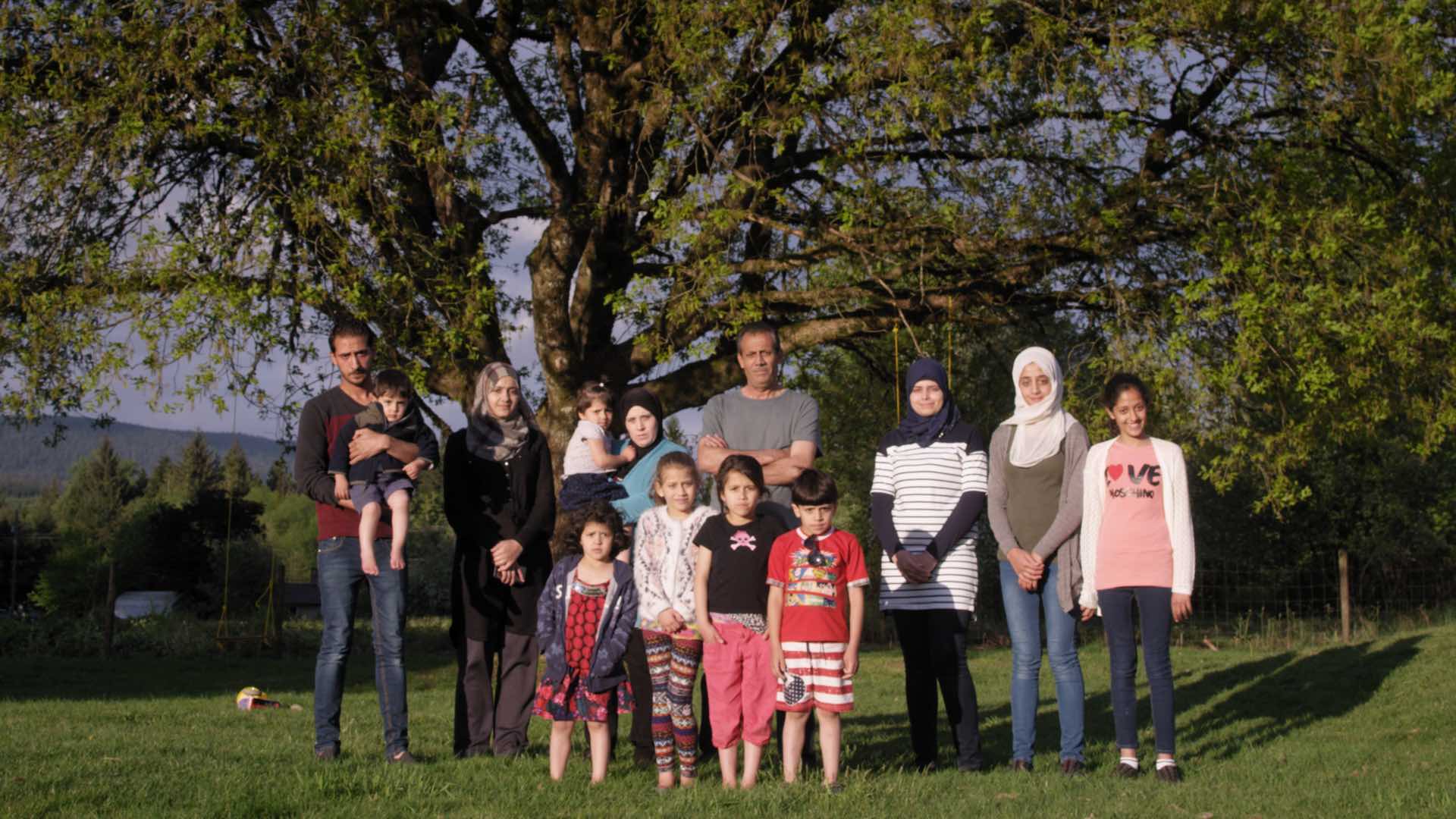I had to fight myself to watch Welcome to Canada, and I expect you might have to as well, but I encourage you to try. I’m not proud of my initial reaction, which could be summarized as a sarcastic “oh, another documentary about the Syrian refugee crisis? Great”. Yet I cannot deny it either. There has been a plethora of documentation in the past year on this humanitarian disaster, it is undoubtedly one of the most consequential and tragic stories in the world today, but as audiences many of us have this reflexive tendency to treat these works like broccoli. Yes, they are good for you in theory, but hey Facebook, pass a new listicle, or the latest Trump outrage over instead please.
I don’t particularly know why this is. I think for Americans at least it’s a multi-decade long fatigue with the Middle East in general, and it’s also a sense of global helplessness over the conditions of the civil war, where there are no easy solutions, no clear-cut good guys to support. Away from the particulars of this situation though, I sense there is a deeply ingrained feeling that “important” equates to “boring”. However when you watch these films, its remarkable how false this supposition is. These pieces—and I’ve watched a lot of them at this point—are suffused with drama, with fabulous characters who persevere and move you deeply with their actions and commitment to hope.
Mohammed Alsaleh, in a strict story sense, is a fabulous character. A young, idealistic Syrian, he abandoned his quest to work to solve cancer after being tortured by the Assad regime. Receiving amnesty from the Canadian government, he emigrated early in the war to Vancouver, where he now works with a government agency to settle incoming refugee families in his adopted home. His sense of purpose and mission is strong, and his energy and warmth is admirable, but underneath the exterior is the pain of trauma, and the deep loneliness of being separated from his family.
Yes, Alsaleh’s story is important. Countries around the world have been shamefully reticent to extend welcoming arms to the millions of refugees displaced, and in my country the President-elect proposed a blanket ban on anyone from Muslim-dominated countries. It is useful to shine a light on the numerous decent, caring and hurting peoples whom these policies condemn. Humanizing the other and fostering empathy is one of the things that film as a medium is unusually well-suited to accomplish.
Yet don’t roll your eyes at the 19min runtime and the promise of doing social good. In the hands of gifted documentarians, these are entertaining and moving stories. Go Project Films, is one of the great documentary production companies in the short form, and following a newspaper story about the motel that the film takes place at, they discovered Ansaleh’s story. While it starts slow, the middle section of the film, which delves into Ansaleh’s backstory, is gut-wrenching, and the close is unusually powerful. Stereotypical images of family, life: a barbecue, adults laughing, children playing on swings, are simultaneously triumphal, and tragic—satisfying for those who’ve settled, heartbreaking in the implicit knowledge of the millions not blessed with the opportunity for safety and normalcy.
Many of the documentaries on the refugee crisis deal with the flashpoint of migrancy, the meeting of refugee’s desperation and the conflicted feelings of Europeans whose communities are upended by the influx. This is valuable documentation for sure, as these often produce striking images that have immediate emotional effects on viewers. But Welcome to Canada, in bypassing this stage, is a welcome addition to the genre too. Showcasing the after, and getting to know individual Syrians outside of a disaster porn setting is powerful in its own right. The humanity of these individuals shine through, and the sense of hope that solutions can be found, and that things would still be ok is, yes, an important message, but also a deeply satisfying one.

 Jason Sondhi
Jason Sondhi